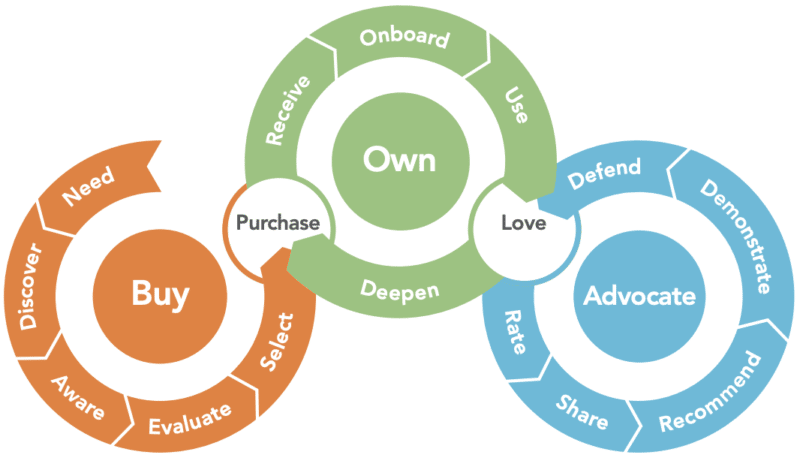Given that customers’ journeys to purchase and beyond are growing increasingly complex due to a seemingly ever-increasing number of devices, channels and options, businesses are seeking customer journey analytics platforms to help them get a handle on what customers are experiencing.
Given all of that promise, marketers are certainly evaluating these technologies and one crucial part of that process is the demo. It’s important to set up demos within a relatively short time frame of each other to help make relevantcomparisons.
Make sure that all potential internal users are on the demo call, and pay attention to the following:
- How easy is the platform to use?
- Does the vendor seem to un that derstand our business and our marketing needs?
- Are they showing us our “must-have” features?

Explore capabilities from vendors like Adobe, Pointillist, SharpSpring, Salesforce and more in the full MarTech Intelligence Report on customer journey analytics platforms.
Here are 19 questions you can use during the demo to thoroughly evaluate whether what you are seeing is right for your organization:
Data gathering:
- Does the tool integrate with the systems you currently use to store customer data?
- What type of machine learning and/or artificial intelligence does the tool use?
- Can we segment and view customers by multiple criteria?
- Can the tool identify anonymous interactions and match them to the correct profile?
- Does the tool allow us to reconcile data from all of the channels in which we interact with customers?
- Are you GDPR and CCPA compliant?
Reporting:
- Do you provide real-time analytics?
- What do the reports look like and how can they be customized?
- Does the tool use artificial intelligence and machine learning? How?
- Is sentiment analysis of relevant customer interactions available?
- What types of insights are surfaced through analysis and what recommendations does the tool make proactively?
Orchestration:
- Does the tool natively orchestrate interactions or integrate with the systems we use (i.e. display ad management, content management systems)?
- How is data exchanged? Are real-time or near real-time personalized or segmented campaigns feasible?
Training and customer support:
- How much training will we need to use the software, and what kind of training is available?
- What level of customer support do you offer, and when is it available (i.e., 24/7 vs. 8/5)?
- What is the turnaround time for support queries/tickets?
- Do you provide professional services or support for our transition?
- What new features are you considering?
- What’s the long-term product roadmap and launch dates?
Get the daily newsletter digital marketers rely on.
Customer journey analytics: A snapshot
What it is. Customer journey analytics software lets marketers connect real-time data points from across channels, touchpoints and systems, allowing users to gain insights into the customer journey over time. This allows marketers to explore the customer journey using data.
Why it’s hot today. Businesses know they need to be customer-focused in each aspect of their marketing operations. As a first step, brands need to understand how consumers are finding them. Whether it be via search, advertisement, or word of mouth, the medium used will set the trajectory for the rest of their journey.
Meanwhile, the average person uses many devices to access the internet, and Cisco forecasts that the number of devices connected to IP networks will increase to more than three times the global population by 2023. With so many devices, people shift back and forth depending on the task at hand and their current environment. Consumers and business buyers turn to an average of nine channels to browse product inventory, look for advice, and make purchases.
Capturing their interactions post-discovery, such as communication with a call center or visit to a retail outlet, helps brands see which of their assets are helping them along their path. What’s more, brands need to know what those who convert do post-purchase–this information helps companies win repeat business and encourage customer advocacy. Customer journey analytics tools do just that.
What the tools do. The majority of vendors offer one or more of the following capabilities to give marketers an understanding of the customer journey: data gathering from a wide variety of channels and touchpoints; analysis using artificial intelligence and machine learning, and customer journey visualization.
Many vendors also offer customer journey orchestration (CJO) capabilities, which allow users to act upon the insights and actually deliver the next step in the customer journey in real-time.
Why we care. Customers expect to have consistent experiences at each of these touchpoints. They want personalization, a trend that continues to grow. Tools like customer journey analytics software give brands the ability to gain insights from their audience and act on them.
Read Next: What is customer journey analytics and how are these tools helping marketers?
New on MarTech
"Demo" - Google News
March 04, 2022 at 11:09PM
https://ift.tt/dkyx7iQ
19 questions to ask customer journey analytics vendors during the demo - MarTech
"Demo" - Google News
https://ift.tt/cCOtVl1
https://ift.tt/wTXG3qZ


No comments:
Post a Comment